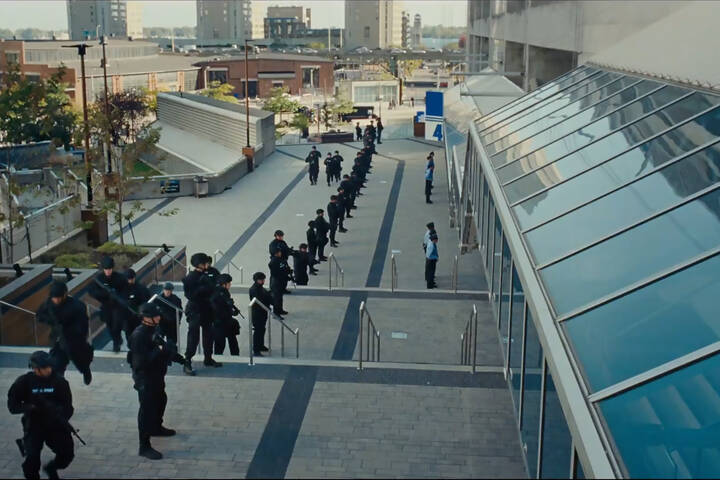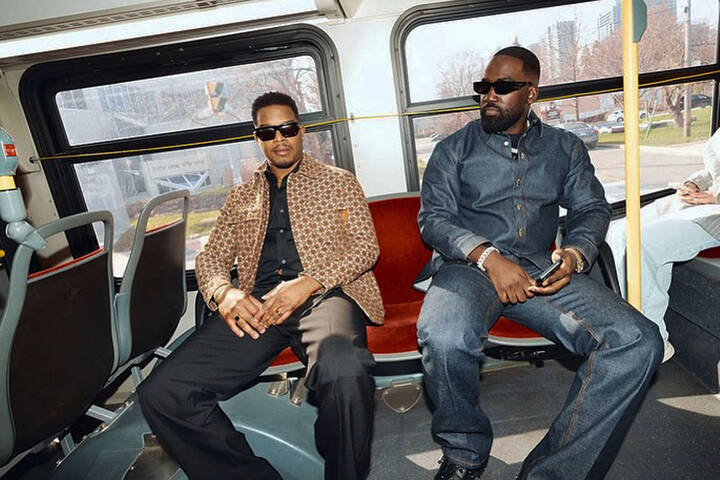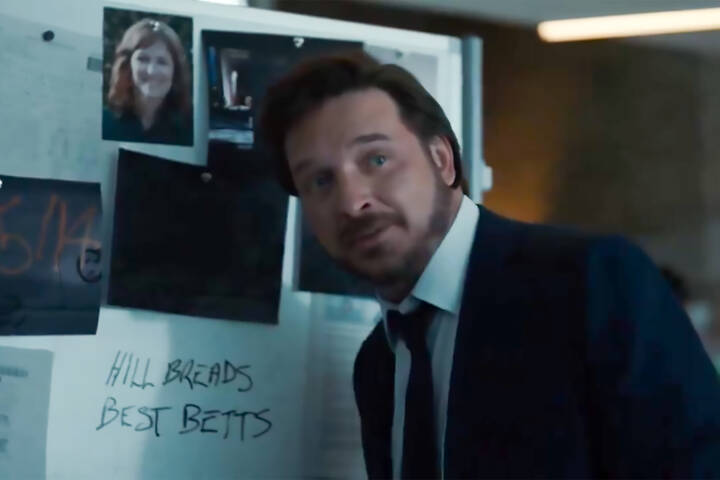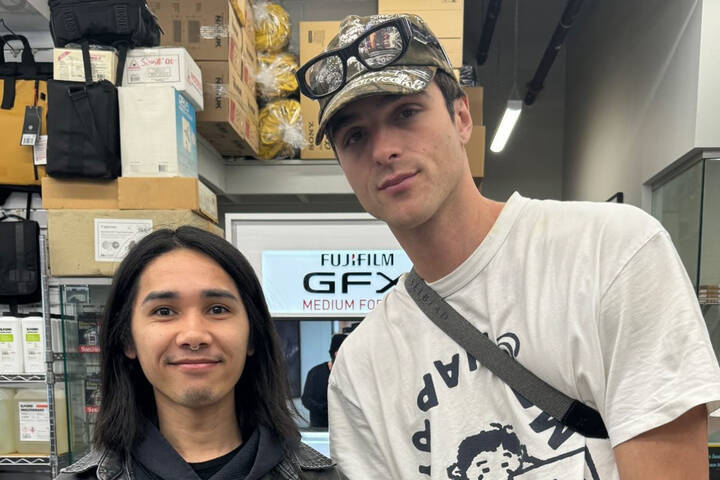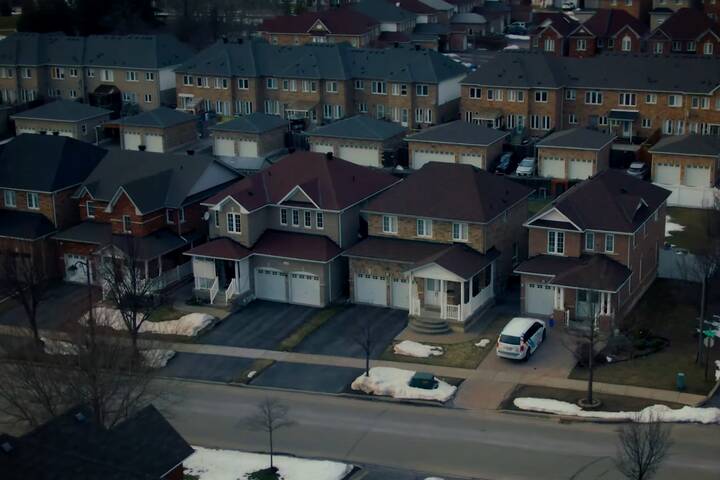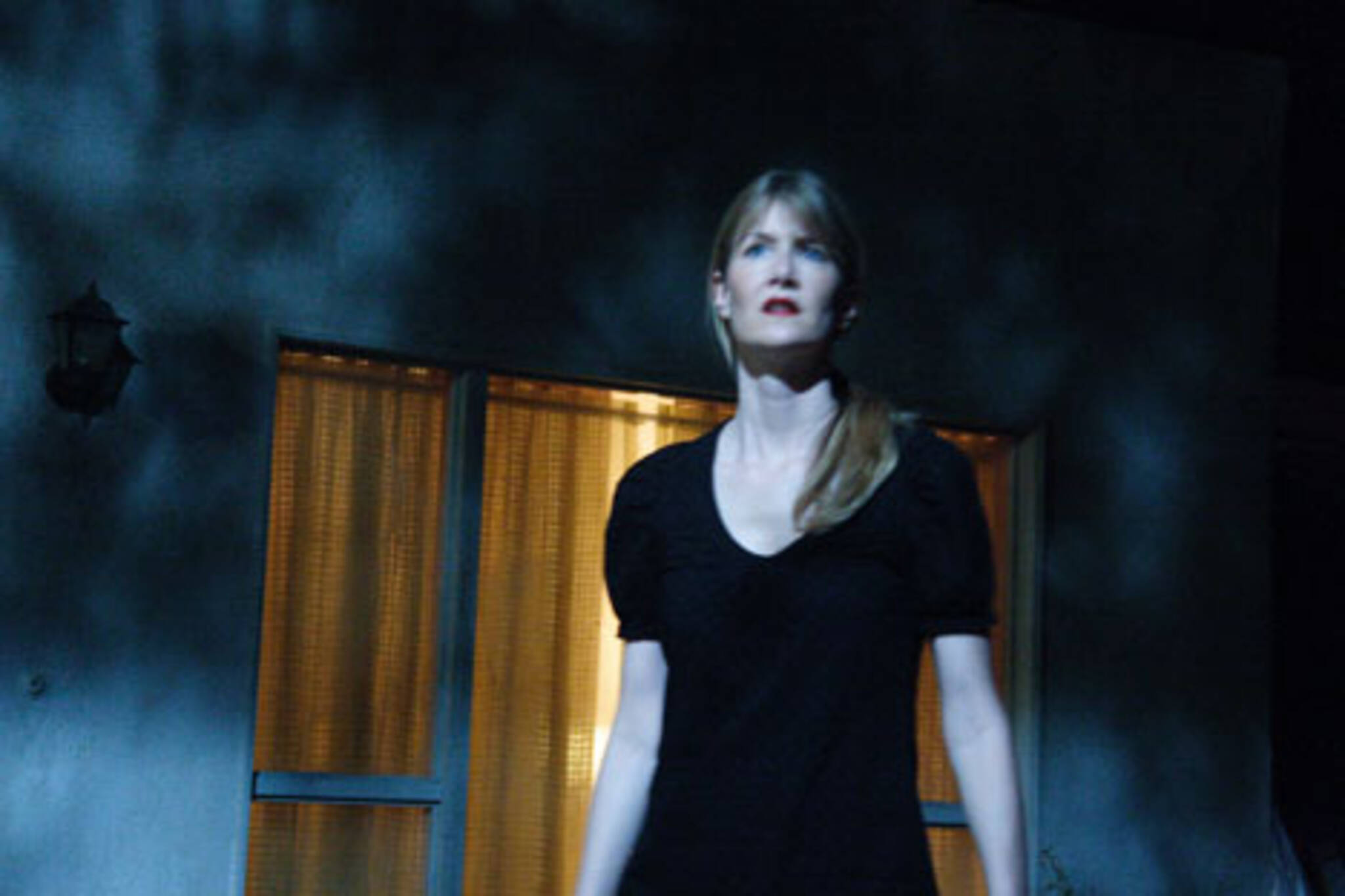
This Week in Film: May 4, 2007
David Lynch's INLAND EMPIRE arrives in Toronto. Opening today at the Royal, 608 College.
Inland Empire
I was a teenager when I came out of the old Capitol Theatre (a rep cinema that used to be near Yonge and Eglinton), and I remember feeling a little fuzzy though blissful about what I had just experienced -- I had just seen Eraserhead for the first time (although the film was already 20 years old then). I even recall the chilling melody of "in heaven, everything is fine" as it echoed in my head days after the screening. It was not my first David Lynch film (that would be Lost Highway), but it was the one film -- or the earliest one I can recall -- that flung open the floodgates of great cinema into my life; it was the match, if you will, that sparked what would become a lifelong devotion to appreciating and understanding art.
It was because of Eraserhead, as odd as that sounds, that would later prepare me for the films of Luis Bunuel, Shohei Imamura, Alejandro Jodorowsky, and other wild men of cinema. Now almost a decade later, and having just seen the new David Lynch film Inland Empire for the first time... it appears the echoes that once haunted me have returned.
Inland Empire is Lynch's latest phantasmagoric satire about the dream factory of Hollywood -- and it's distinctly a masterwork that only a director at the pinnacle of his artistry could make -- and successfully get away with. Notwithstanding the film's three hour running time and the fact that it's shot on prosumer-grade DV (which gives it a murky and not-so-pretty look), it's also the most meandering and weightiest of all the films in the Lynchian oeuvre. To say the film shares the signature duplicity found in nearly all his work -- that it's frustrating and absorbing at the same time -- is by now a moot point; because whether you "enjoy" it or not matters next to nil -- to him, to his producers, or to his rabid cult following who are eager and willing to be challenged to the brink of transience.
Disclaimer: I belong to the cult.
And so I'm hesitating before a slight hurdle right now pondering about how I should talk about this film without coming off like a stubborn contrarian since most critics have already weighed in, calling it everything from "seductive and deep" to "impenetrable and pointless". Yet, what I know for certain is that if you're hoping for some impartial critique about this film... please forgive me as I haven't become jaded to the point where I don't get excited about movies anymore -- Lynch is a very exciting director, if not the most exciting American director working today.
The plot, or at least the beginning of one, concerns an aging Hollywood starlet named Nikki (Laura Dern), who nabs a starring role alongside leading man Devon (Justin Theroux) in a bad remake of a Polish melodrama. The movie-within-a-movie is helmed by a hotshot English director (Jeremy Irons), who appears to be quite good at his job despite being oblivious to the corny dialog -- must've been poorly translated we assume. But not long into production, Nikki and Devon are already entangled in a love affair (steamy but it's no Wild at Heart), and... okay, well, that's the point where the plot breaks off and strays into a series of bizarre episodes one after another. You see, like that sentence, it's jarring and leaves you feeling like I just pushed you off a cliff after giving you a warm embrace -- Lynch does that to me all the time.
Should I at least list some of the stuff that goes on in this movie? Let's go: there are talking humanoid bunnies and one of them is voiced by Naomi Watts, but you won't know that unless you read the credits; then there's not one but two musical numbers -- one performed by harlots doing the "Locomotion" and the other has a lumberjack sawing wood; and somewhere in there is a scene where a guy squirts ketchup (or blood) on his shirt and says, "where are the paper towels"... and why that's funny? I don't know, but it had me rolling. Needless to say, a lot of scenes in the film won't work for everyone (ha, there's another moot point), and it's this solipsistic esotericism that could mar your experience if you're looking for subtext to go with your black humour.
Think of Bunuel's episodic black comedies The Discreet Charm of the Bourgeoisie and The Phantom of Liberty. In those classic films, Bunuel is constantly toying with our expectations, stretching out the insanity so far that we're anticipating for when the elastics will snap -- sometimes they do, sometimes they don't. Lynch is no different in his methods. But whereas Bunuel attacks the middle class and orthodox religion with a sense of bemused cynicism, Lynch chooses to aim his farce grenades at Tinseltown, albeit a much easier target, and does so by incorporating cinematic assault techniques normally associated with the horror genre: sound and atmosphere. Yet, the subversive barbs in Inland Empire don't always feel fresh, because by now the idiosyncrasies seem a little too familiar and a bit belabored. I understand Lynch's rancor held over from the heartbreaking failures of Dune to the TV pilot of Mulholland Dr., but, honestly, I hope Inland Empire is the last word on that because it's starting to wear thin.
Regardless, the fans aren't going anywhere. I believe what has propelled Lynch into the popular consciousness and well above the majority of the avant-garde and experimental filmmakers is that all his films are essentially rooted in genre: The Elephant Man is a bio-pic; Dune is science fiction; Blue Velvet and Lost Highway are noirs; Wild at Heart and The Straight Story are basically road movies. It's in these comfortable structures that allow us access, and permit us to invest in the story -- something experimental films habitually and often eschew.
But as always in a Lynch movie -- and in the grand hallmark of his style -- we never get too comfortable before the rug gets pulled suddenly from under us. Lynch has been doing this for over three decades, and by now he knows how gently or how hard he wants us to fall. Yet, to the testament of his skill and longevity, he has never been entirely sadistic despite his gifts to shock and appall, there's always beauty and hope if you look closer -- tucked in between the dark cracks and crevices like the angel in the radiator from Eraserhead or during the slow dance between Kyle MacLachlan and Laura Dern in Blue Velvet. It's always in the details. Finally, the late Pauline Kael was precise when she wrote: "Lynch might turn out to be the first populist surrealist -- a Frank Capra of dream logic." (The New Yorker) How her words have proven prophetic.
Inland Empire is not a perfect movie -- far, far from it -- but its imperfections are what makes it completely original and difficult to define. Those who used Mulholland Dr. as an entry point into the Lynchian universe may be theorizing about the film's greater meaning, but those efforts might be in vain. It may not be a puzzle at all. Whatever mysteries are inherent, I would assume, are simply there as casual agents to push the narrative. However, those who recognize that rational logic is arbitrary and unimportant when arriving should have a wonderful time relishing in all the absurdist minutia. I know I did.
Also opening this week:
Spider-Man 3
The Flying Scotsman
Civic Duty
Lucky You
La Doublure
(Photo: ABSURDA)
Latest Videos
Latest Videos
Join the conversation Load comments
